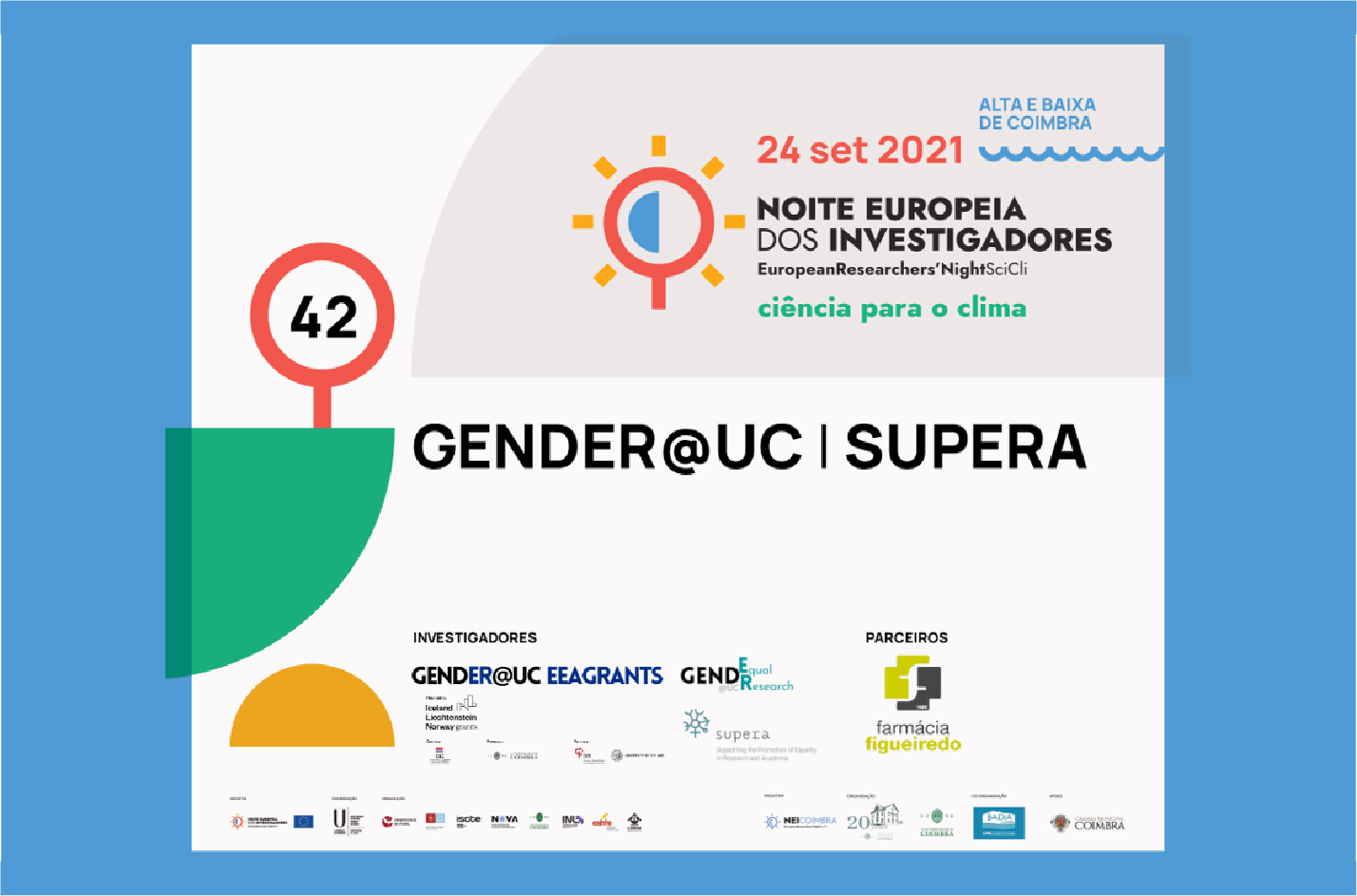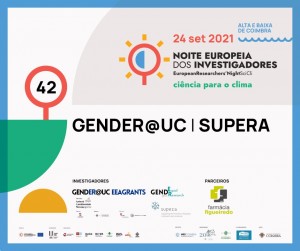From training the trainers to training the community: the experience at CES-UC
By Cláudia Araújo, Universidade de Coimbra
Throughout the duration of SUPERA, all Consortium members devoted significant efforts to training and capacity building, as, from the beginning, our project was about improvement: improving our institutions, improving the wellbeing of our communities, but also improving ourselves, as academics and as human beings. Our starting point at CES-UC was one of general lack of awareness and expertise on gender equality in academia by key stakeholders, as well as absence of institutional action or mandate in pursuing gender equality, so we were aware that our work would necessarily include training and capacity building.
The participatory approach to these activities developed in the Consortium was a fundamental step in pursuing this multifaceted improvement.
Training the trainers
Although the core team at CES-UC was well versed in gender equality in higher education institutions, and experienced in delivering training, participation in the first training sessions organised within the Consortium constituted a much-valued opportunity for obtaining new skills and gaining new insights. We appreciated the hands-on approach to acquiring knowledge, the experienced gained on working with an array of participatory techniques that we then applied in our own university, and enjoyed mobilising our creativity to design collective outcomes that could be adapted to our own institutional context. It was also an opportunity to engage partners from the University’s central services that would be able to multiply efforts across our organisation: for example, the HR Officer, selected with the purpose of fostering her ability to incorporate GE in her work, as well as her engagement with GEP implementation or the Head of the Planning Division, whose in-depth practical knowledge about the structures and procedures of the institution made him a valuable asset for foreseeing and navigating resistances.
These training sessions were also excellent opportunities to build a more personal relationship with the teams from the other universities, research funding organisations and expert partners. The added value of the personal interconnections built during these sessions cannot be understated: as we faced challenges, resistances and difficulties during the implementation of the project, we knew we could benefit, from the start, from a strong inter-institutional support network that we could rely upon – even in such unprecedented pandemic times.
We also took part in training sessions promoted by sister projects, such as the GE Academy, that were also valuable in enriching our experiences and building our capacities to pass on valuable knowledge to our own community at CES-UC, but also to network and expand our horizons.
Training the community
The Supera team at CES-UC run multiple training sessions, workshops and co-creation actions since Supera’s inception. We chose to articulate traditional exposition-based training with co-creation techniques, as that stood as the most appropriate path for our institution. That allowed us to provide innovative spaces of knowledge creation, with the participation of multiple members of the academic community: students, research and teaching staff, technical and administrative staff, and institutional leaders. We were thus able to create participatory venues where they were lacking, and support participants’ efforts in co-designing solutions for complicated gendered problems, that we then streamlined to decision-makers in the university, in the form of specific recommendations/ guidelines/ checklists. This practice also created a much valued avenue of engagement and open discussion, enabling further networking for gender equality across the institution.
This alliance-building and stakeholders empowering work was rewarding for both trainers and trainees, and the multiplying effects of the sessions cannot be diminished. We received very good feedback from our participants, who often returned for subsequent sessions with different topics and recruited colleagues and friends to join them. But these sessions also constituted a great opportunity for the Core team to reflect on its own ability to create impact, and to find support and encouragement in the interpersonal connections that were built during these encounters.
In lieu of a conclusion: training and capacity building for GEP design, implementation and monitoring
Training and capacity building are fundamental for structural change, and efforts devoted to these activities were crucial in all steps of GEP creation and implementation at CES-UC. In GEP design, there was, firstly, a need for relevant stakeholders to embrace the pursuit of gender equality as essential for a fairer, more inclusive and more sustainable institution; secondly, ownership of the GEP would be deeper if said stakeholders were involved in its design. It was to these two dimensions that the team at CES-UC firstly devoted its training efforts, which were continued through the inclusion in the GEP itself of a number of training and capacity building actions encompassing all publics that make up the academic community, devoted to a variety of themes that stood up as particularly relevant during the initial assessment (i.e., inclusive communication, recruitment and promotion, integration of the gender perspective in research and teaching content). What is more, the importance of gender analysis in monitoring and reporting were also part of the general capacity building for gender equality promoted by the Core team at the University of Coimbra.
In addition, the sessions were also an important avenue for members of the Gender Equality Hub and other interested parties to gather – in person or online – in a safe environment, and discuss how they could enhance their own work towards gender equality, often in connection to actions included in the GEP that they could pursue in their faculties or units/divisions. Training, then, was a catalyst for networking, lobbying, finding collective answers to institutional resistances, and support for initiatives taken. Human connections were built and, we like to believe, friendships were created. In that sense, SUPERA training sessions became community-building moments, with a focus on the promotion of Gender Equality.
As we move towards the end of SUPERA, we build on those connections as an essential takeaway from our hard work, and are certain our experience does not differ dramatically from that of other members of the consortium. As our final conference approaches, we look forward for another valuable moment of learning and sharing with the people who accompanied us through this journey, in the certainty that it will not be our last encounter.









